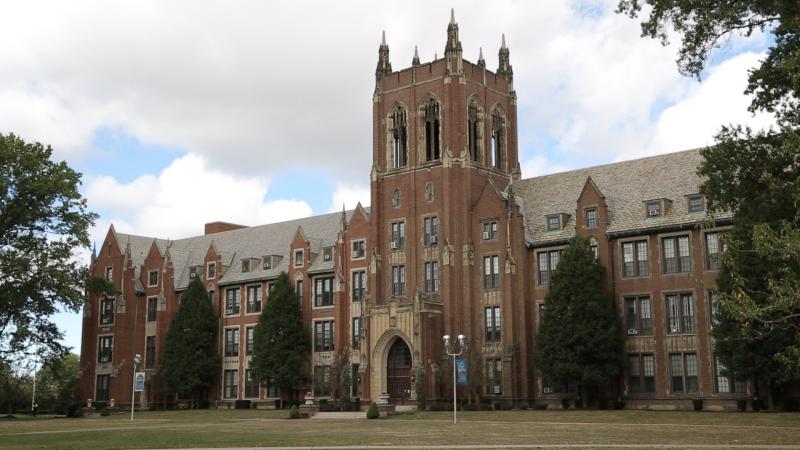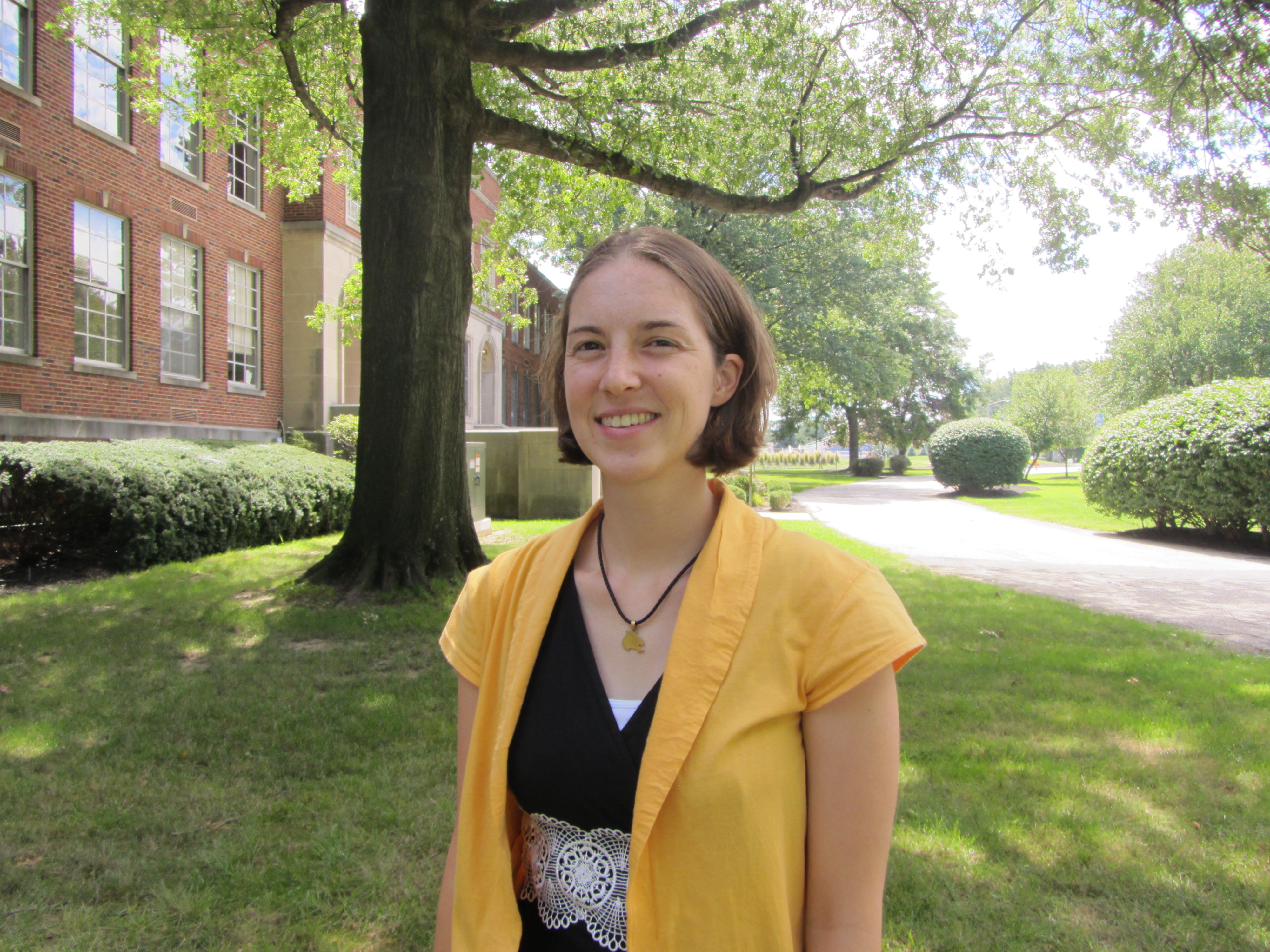
Earlier this year, my Campus Ministry colleague and I decided that our Lent practice would be canceling things. Our schedules were so packed with programs, events, and meetings that there was little time for connecting with individual students and our own spiritual reflection. It felt freeing each day to remove something from my schedule, or to quickly say no when a new opportunity was presented to me.
Two weeks after Lent began, the coronavirus was declared an international pandemic, and suddenly it seemed like the whole world was participating in our practice. Each day brought a new wave of cancellations: trips, in-person classes, sports seasons, concerts, our graduation ceremony. Just a day before I had planned to leave on a spring break trip with students, I began working from home with only my husband for company, where I have been for most of the past 12 weeks.
When our campus closed, my primary reaction was worry. I worried about the students I suspected would be going “home” to places where someone was abusive or they did not have enough food to eat (not to mention internet access or a quiet place to study). Our Student Affairs team split up our entire undergraduate population, each of us charged with checking in on a list of students every 7–10 days. We encountered such disparity: one student was mad about missing spring football training, another was behind on her schoolwork because her house had been without electricity. One was picking up shifts at the grocery store, another educating her younger siblings, another mostly bored and sleeping.
Besides being worried, I felt helpless. How could these students survive this, especially without coming into the Campus Ministry Office to talk to me? How could I save them from this confusion and despair without seeing them in person?
Of course these questions are ridiculous. I could never save my students from anything. And what they were facing now, though abrupt and heightened, was not totally different from the situations they went home to over breaks or even dealt with daily. I knew the companionship and guidance we provided in the Campus Ministry Office was important, along with practical things like the on-campus food pantry we had started. But I was never going to save them. That’s not up to me.
This was an important realization. The second realization was equally important: I could still do something.
The rest of the semester became an exploration of what worked and what did not in socially distant campus ministry. Worship experiences were not very successful. My colleague and I recorded upbeat videos with reflections on each week’s scripture readings, but the views declined over the weeks. The intro theology class I teach finished with a whimper—some students seemed to think the class ended mid-semester, though I kept posting things. The wider campus scrambled to think of ways to honor graduating seniors, and students felt neglected or frustrated at having to miss so many anticipated things.

What did work was what our office has always done well, and what we were trying to make space for with our Lent practice: conversations. In the second half of the spring semester, I connected with far more students by text, video chat, social media, email, and even old-fashioned phone calls than I think I would have in person on campus. I continued providing spiritual direction, virtually, and even started meeting with several new students in that capacity. Our faculty/staff book club moved to Zoom and decided they wanted to meet more frequently!
Still, though, we knew something was missing not being in the presence of each other’s bodies, sharing a physical space together. Our year-end Campus Ministry survey stirred up feelings of both encouragement and confusion, as I read the reflections of students who had been interacting with us for several years. Here is what one of them said:
“The conversations had in the campus ministry office were always very interesting to say the least. I was able to make many friendships with the campus ministers and other people that would come into the office. The office became my second home basically. . . . I also had many spiritual conversations while in the office and they helped me open my mind to new ideas. I grew a lot these past couple of years and the campus ministry played a huge part in that.”
This comment and other reflections on our many activities brought up questions for me going forward. What if we can no longer gather in the office, travel on Immersion Experiences, serve at afterschool programs and nursing homes, go on retreats? What “second homes” are being lost all around us? What to do with all this uncertainty and suffering?
I recently re-read Gabriel Garcia Marquez’s Love in the Time of Cholera, a strange and relevant novel for this time. At the end of the book, a character becomes “overwhelmed by the belated suspicion that it is life, more than death, that has no limits.”1 Yes. Life finds a way to keep going, spilling over the limits, gathering strength in the darkness, emerging through screens.
Recently I was talking with a student over Zoom, her boyfriend half-dressed in the bedroom behind her. We were wrapping up our conversation (I thought), when I asked if she had any other questions for me. “Do you have to believe in the Bible to believe in God?” she asked, and we were off, exploring assumptions, sharing experiences, voicing doubts and convictions together, cultivating what hopefully will become for both of us a wider, deeper way of being and believing.
This kind of connection will never be canceled. It can’t be. It is not clear what my ministry will be like going forward, or honestly if my Student Affairs colleagues and I will even have jobs come fall. Nothing seems clear to me anymore. Except this: God is still working. And sometimes, if I let it, God’s salvation can even come through me.
1 Gabriel Garcia Marquez, Love in the Time of Cholera, trans. Edith Grossman (New York: Alfred A. Knopf, 1997), 422.
 Anita Hooley Yoder is the Assistant Director of Campus Ministry at Notre Dame College. She is a writer and editor and graduate of Bethany Theological Seminary and Goshen College. She is the author of Circles of Sisterhood, which explores the history of Mennonite women’s groups. Additionally, her work has appeared in the Center for Mennonite Writing journal, The Mennonite, and other venues. She and her husband live in Cleveland Heights, Ohio.
Anita Hooley Yoder is the Assistant Director of Campus Ministry at Notre Dame College. She is a writer and editor and graduate of Bethany Theological Seminary and Goshen College. She is the author of Circles of Sisterhood, which explores the history of Mennonite women’s groups. Additionally, her work has appeared in the Center for Mennonite Writing journal, The Mennonite, and other venues. She and her husband live in Cleveland Heights, Ohio.

